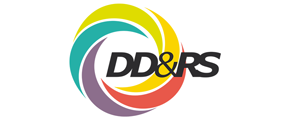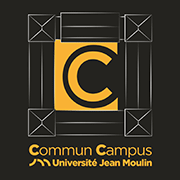AccueilRechercheProgrammes et productions scientifiquesThèsesThèses soutenuesThèses soutenues - 2006-2021Thèses soutenues - 2017
-
Partager cette page
- Recherche,
RATEAU Ma?té
Contributions des managers d’établissements médico-sociaux au développement d’une fonction commerciale orientée client
Publié le 12 février 2018 – Mis à jour le 26 juin 2018
Thèse en Sciences de gestion, soutenue le 30 novembre 2017.
Les établissements médico-sociaux sont des organisations dont l’utilité sociale n’est plus à prouver. Notre recherche s’intéresse à l’amélioration des performances sociale et économique de ces structures pour faire face aux turbulences de l’environnement externe. Depuis les nouvelles lois jusqu’aux changements de comportement des usagers et des clients, en passant par les contraintes économiques, les dirigeants et managers sont amenés à faire évoluer l’organisation. Nos travaux de recherche explorent l’une des solutions envisagées par ces acteurs : le développement d’une fonction commerciale orientée client. En se basant sur deux principaux cadres théoriques que sont la théorie socio-économique et la théorie de l’échange social, nous étudions deux cas de recherche-intervention, un établissement médico-social et une entreprise du secteur de l’économie sociale et solidaire, afin de mettre en lumière les convergences et les spécificités dans les actions et résultats d’un développement de leur fonction commerciale. Les expérimentations menées dans ces deux organisations ont permis de déterminer trois leviers activables par les managers : les structures, les compétences et les comportements. Les structures, éléments permanents et stables de l’organisation, doivent permettre une réalisation des missions commerciales et une répartition entre les personnes. Les compétences ne peuvent évoluer sans un accompagnement interne et sans la prise de conscience des missions confiées. Enfin, le comportement est ce qui régit les actions de chacun. Ainsi, une sensibilité économique et une prise en compte de l’ensemble des clients de l’organisation sont des facteurs déterminants pour adopter un comportement commercial orienté client. La stratégie est cependant un élément essentiel pour un développement pérenne de la fonction commerciale. Comprise, admise et intégrée, elle constitue le point de départ de la contribution des managers à une telle démarche de changement.
Medico-welfare centers are organizations whose social utility has no longer to be proved. Our research focuses on improving the social and economic performance of these structures in order to cope with the turbulence of the external environment. From the new laws to the changes in the behavior of users and customers, including economic constraints, CEOs and managers have to adapt the organization. Our research explores one of the solutions by these actors: the development of their customer-oriented sales function. Based on two main theoretical frameworks: socio-economic theory and social exchange theory, we study two cases of research-intervention, a medico-social institution and a company in the social and solidarity economy sector, in order to highlight the convergences and specificities in the actions and results of a development of the commercial function. The experiments carried out in these two organizations made it possible to identify three levers that can be activated by managers: structures, skills and behaviors. The structures, permanent and stable elements of the organization, must allow the realization of commercial missions and a distribution among the employees. Competencies cannot evolve without internal support and awareness of the tasks entrusted to them. Finally, behavior is what governs the actions of each. Thus, economic sensitivity and taking into account all the clients of the organization are decisive factors in adopting customer-oriented commercial behavior. The strategy is, however, an essential element for a sustainable development of the commercial function. Included, accepted and integrated, it is the starting point of the contribution of managers to such a process of change.
Président.e du jury : Mme Véronique DES GARETS
Equipe d'accueil : MAGELLAN
Medico-welfare centers are organizations whose social utility has no longer to be proved. Our research focuses on improving the social and economic performance of these structures in order to cope with the turbulence of the external environment. From the new laws to the changes in the behavior of users and customers, including economic constraints, CEOs and managers have to adapt the organization. Our research explores one of the solutions by these actors: the development of their customer-oriented sales function. Based on two main theoretical frameworks: socio-economic theory and social exchange theory, we study two cases of research-intervention, a medico-social institution and a company in the social and solidarity economy sector, in order to highlight the convergences and specificities in the actions and results of a development of the commercial function. The experiments carried out in these two organizations made it possible to identify three levers that can be activated by managers: structures, skills and behaviors. The structures, permanent and stable elements of the organization, must allow the realization of commercial missions and a distribution among the employees. Competencies cannot evolve without internal support and awareness of the tasks entrusted to them. Finally, behavior is what governs the actions of each. Thus, economic sensitivity and taking into account all the clients of the organization are decisive factors in adopting customer-oriented commercial behavior. The strategy is, however, an essential element for a sustainable development of the commercial function. Included, accepted and integrated, it is the starting point of the contribution of managers to such a process of change.
Mots-clés :
fonction commerciale, orientation client, établissement médico-social, compétence commerciale, comportement, stratégie commerciale, pilotage, managers
Keywords :
sales function, customer oriented, medico-welfare centers, sales competencies, sales behavior, business strategy, steering, managers
Directeur(s).trice(s) de thèse : Mme ?Véronique Zardet
fonction commerciale, orientation client, établissement médico-social, compétence commerciale, comportement, stratégie commerciale, pilotage, managers
Keywords :
sales function, customer oriented, medico-welfare centers, sales competencies, sales behavior, business strategy, steering, managers
Directeur(s).trice(s) de thèse : Mme ?Véronique Zardet
Membres du jury :
M. Franck BRILLET, Professeur des universités, Inspecteur Général de l’éducation nationale, Ministère de l’?ducation nationale de l’Enseignement supérieur et de la Recherche,
Mme Véronique DES GARETS, Professeure des Universités, IAE-Université Fran?ois Rabelais, Tours,
M. Marc FRACHETTE, Docteur en sciences de gestion, Consultant,
M. Franck BRILLET, Professeur des universités, Inspecteur Général de l’éducation nationale, Ministère de l’?ducation nationale de l’Enseignement supérieur et de la Recherche,
Mme Véronique DES GARETS, Professeure des Universités, IAE-Université Fran?ois Rabelais, Tours,
M. Marc FRACHETTE, Docteur en sciences de gestion, Consultant,
M. Denis HAMAYON, Directeur adjoint, ADAPEI Les Nouelles C?tes d’Armor,
M. Jocelyn HUSSER, Rapporteur, Professeur des Universités, IAE Aix-Marseille,
M. Jocelyn HUSSER, Rapporteur, Professeur des Universités, IAE Aix-Marseille,
M. Thierry NOBRE, Rapporteur, Professeur des Universités, Université de Strasbourg,
Mme Véronique ZARDET, Professeure des Universités, Université Jean Moulin Lyon 3.?
Mme Véronique ZARDET, Professeure des Universités, Université Jean Moulin Lyon 3.?
Président.e du jury : Mme Véronique DES GARETS
Equipe d'accueil : MAGELLAN
Décision : Admise
Documentation
Mise à jour : 26 juin 2018







